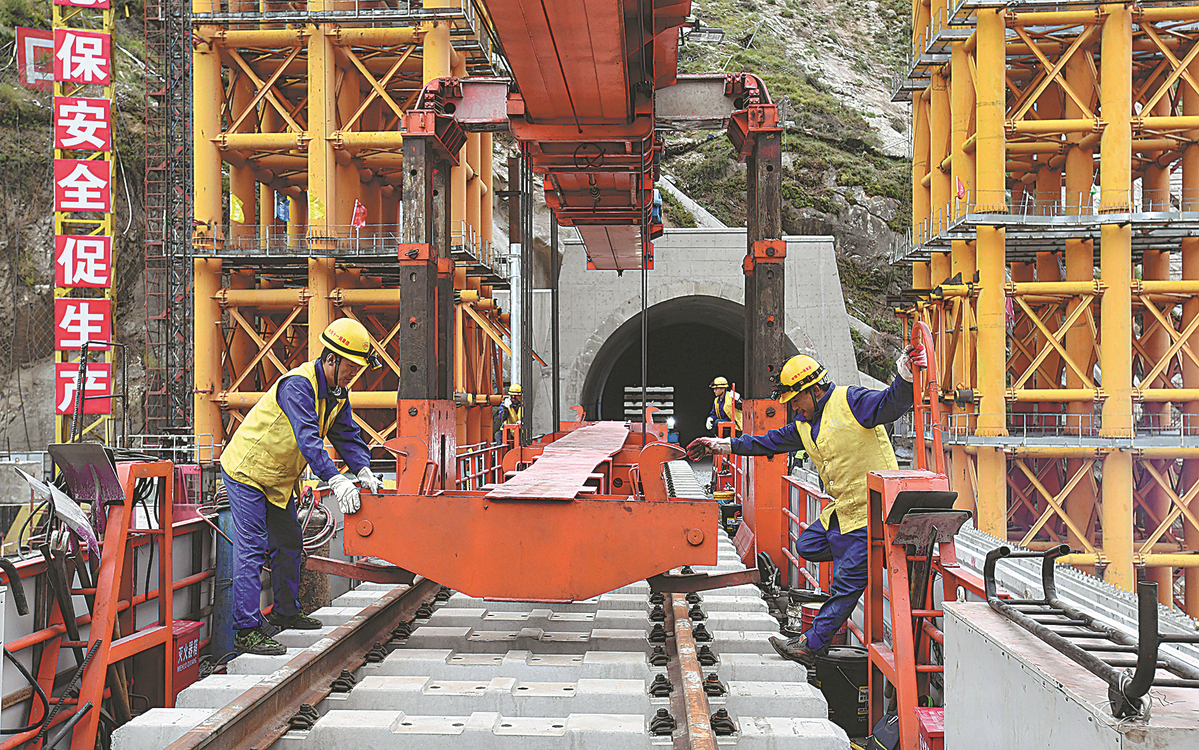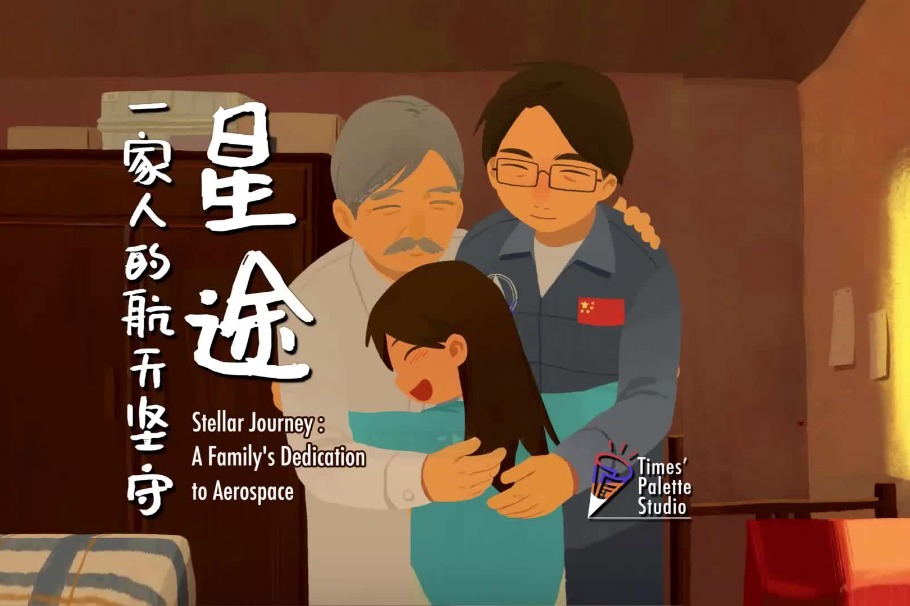Rail line offers Tibet fast, safe, pleasant travel option


Sonam Wangdrak, who comes from Lhorong county in the city of Chamdo in Tibet and has been a locomotive driver for 15 years, is pleased to have the opportunity to work in Tibet.
He also hopes that access to rail service will continue to expand in Tibet.
Sonam Wangdrak recalled that, while in a primary school class three decades ago, he saw a picture of a train and made up his mind to work hard in school so he could one day be a locomotive engineer.
In 2003, he enrolled in Lanzhou Railway Machinery School in Northwest China's Gansu province and studied there for four years.
In 2007, he began an internship with China Railway Qinghai-Tibet Group in Qinghai province, which neighbors Gansu, and became a qualified engineer in 2012.
Last year, Sonam Wangdrak received a license to drive Fuxing bullet trains in Tibet, and now he works on the Lhasa-Nyingchi rail line.
"When I was a boy, villagers in my hometown might not have had a chance to even see a train. Now I have become an engineer," he said proudly.
"I believe that in a few years my hometown, Chamdo, in east Tibet will have rail access, and I dream that one day I will be able to go home by train," he added.
Fu Xiaoge, 26, who is from Northeast China's Liaoning province, began working as chief conductor for the Lhasa-Nyingchi rail in November.
"The opening of the rail is a historic event, and I want to make my own contribution to the development of Tibet while I am young," Fu said.
Upon graduation from a vocational school in Central China's Hunan province, she applied for a job on the Lhasa-Nyingchi rail line, having knowledge of Tibet that she learned from her father.
She knew about "the grand Potala Palace, Jokhang Temple, the snowcapped mountains and the yak herds", Fu said.
Initial difficulties
She said that she is honored to work in the plateau region, although at first she experienced difficulty breathing, which was followed by altitude sickness, including headaches and bleeding from the nose.
Having no command of the Tibetan language, Fu initially had difficulty communicating with the local residents.
"But as time goes by, I now understand them better, from their facial expressions and gestures, and I try my best to help them," she said.
Fu often feels homesick, as she has not visited her parents, who are more than 4,000 km away, for a year.
"But I overcome all these difficulties by thinking of my work, responsibility and mission," she said.
Meanwhile, rural residents in Tsikrak, a village in Nyingchi, have benefited from the rail line, which passes within one kilometer of the village. Now they no longer need to venture far from the village for part-time jobs.
Forty of the village's 292 residents work at the Nyingchi Railway Station.
Anyu, one of the villagers, said that most residents of the village do farm work, while most young villagers go to other places for part-time jobs throughout the year, and the elderly mostly stay in the village.
"After graduating from college in 2021, I started to work as a security inspector at the Nyingchi train station," said Anyu, 23.
"As my Mandarin is fluent, I have now become the team leader for security inspection at the station," she said.
























